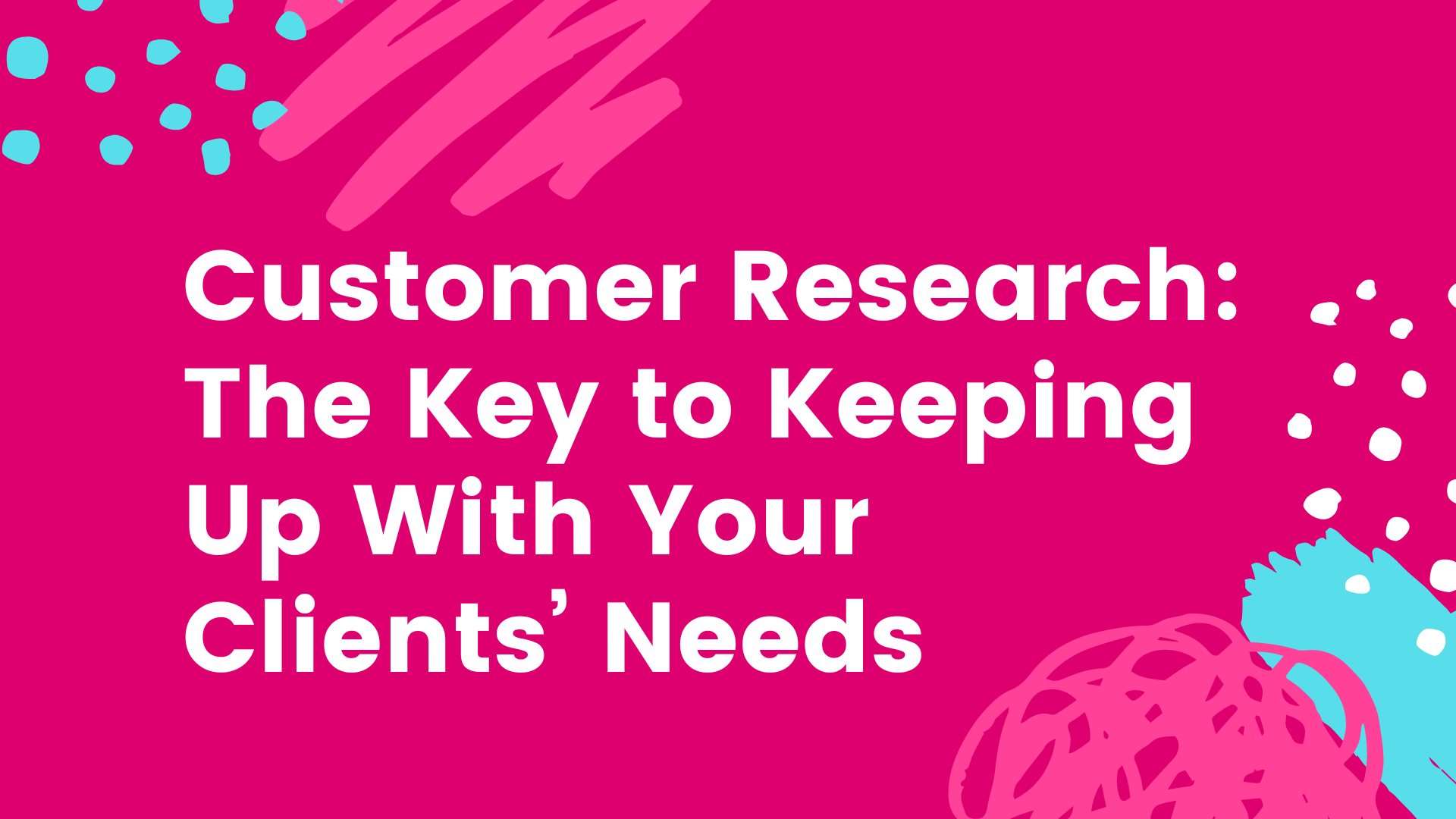As our businesses grow and evolve, so do the needs of our clients. It is important that our customers always remain at the centre of our companies, otherwise our efforts will be in vain.
A great way of ensuring that your business is always meeting your client’s needs is by constantly updating your customer information!
Throughout this blog, we will discuss it all – from the importance of client information to different research methods and data storage.
Why is gathering customer information so important?
Customer information is important for a myriad of reasons. It helps us understand our client’s needs, which products or services generate the most income and, most importantly, how to improve our customer experience.
By leveraging this information we can refine our marketing strategies, keep up with our competitors, offer personalised services and improve customer loyalty by a staggering 64%!
Do consumers actually care about the customer experience?
Believe it or not, 80% of consumers claim that the customer experience is ‘just as important’ as the quality of products and services you provide. Overlooking customer research simply isn’t an option! After all, who’s more qualified to teach you how to deliver the best customer service than your clientele?
What client information should you collect?
More is more in this instance. So instead of spending hours specifying all the information you need, we’re going to outline the four types of data you should collect to gain a detailed understanding of your audience:
Identity Data
Identity Data is used to identify specific clients and customers. Some of the information you would need to collect would include:
- Names
- Physical addresses
- Email addresses
- Mobile numbers
This information will allow you to contact customers, ask for their insight and send them marketing materials – with their consent.
Descriptive Data
Descriptive data asks for more personal information about your clients so you can gain a greater insight into your audience and the demographics you’re reaching. For example, you may ask about their:
- Age
- Gender
- Career or education
- Marital or familial status
Qualitative Data
Now, this is where we get into the really good stuff. Qualitative data teaches you all about your customer’s beliefs, behaviours and motivations in relation to their consumer habits. This is your opportunity to ask specific questions like:
- What do you enjoy about our product/services?
- How could we improve our customer service?
- Why did you choose our company over our competitors?
- Would you recommend us to a friend or family member?
- How can we bring you additional value?
Quantitative Data
Collecting quantitative data is a great way to understand how your customers interact with your business. Its primary function is to track marketing trends and consumer patterns. For example, some of the analytics you could track include:
- How often customers visit your website
- The value of each transaction
- How often they engage with your social media
How should you collect and store your client information?
There are several ways you can go about collecting customer information. Our top recommendations include:
- Feedback surveys
- Interacting on social media
- Website tracking
- Subscription services
We also strongly suggest investing in a CRM system. Some CRM systems focus solely on storing your client information, whilst others also offer sales and marketing automation to help put your research into practice. Whether you opt for the former or the latter, an effective CRM system can help you:
- Streamline your communications
- Optimise your marketing strategies
- Improve customer retention
- Increase profits
Keep up with your customers’ needs!
If you want to optimise your services, keep up with competitors and continue fulfilling your clients’ needs, you must invest your time and resources into your customer research.
Loyal clients are the basis of every successful business, so don’t underestimate the importance of understanding your audience! Instead start valuing their insight as much as you value their business.




